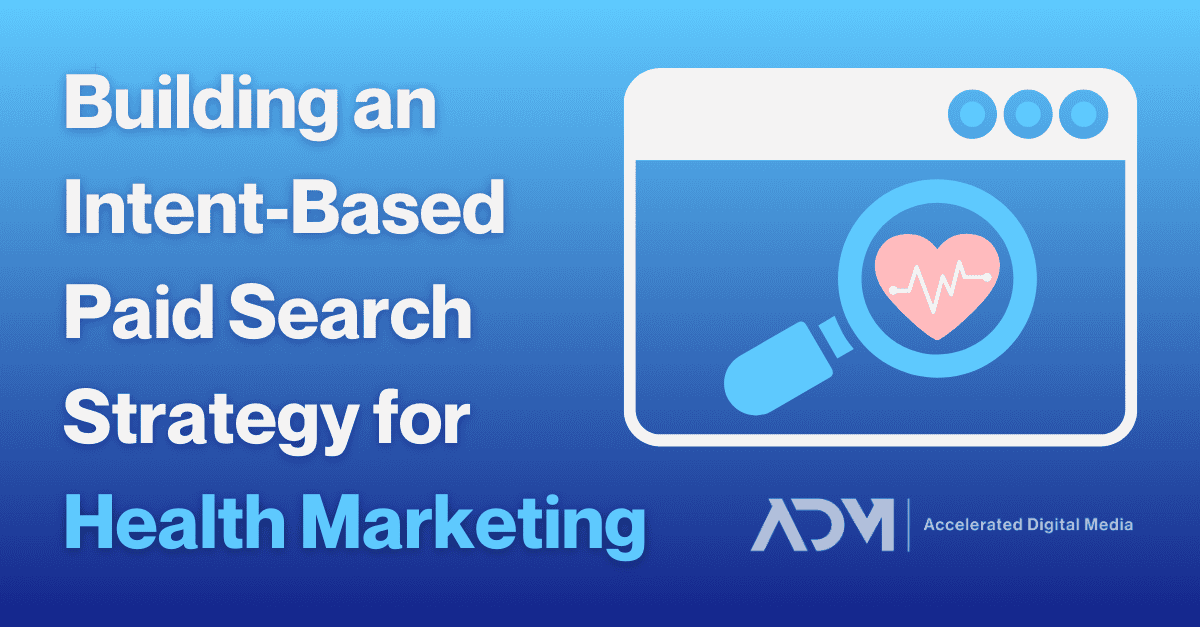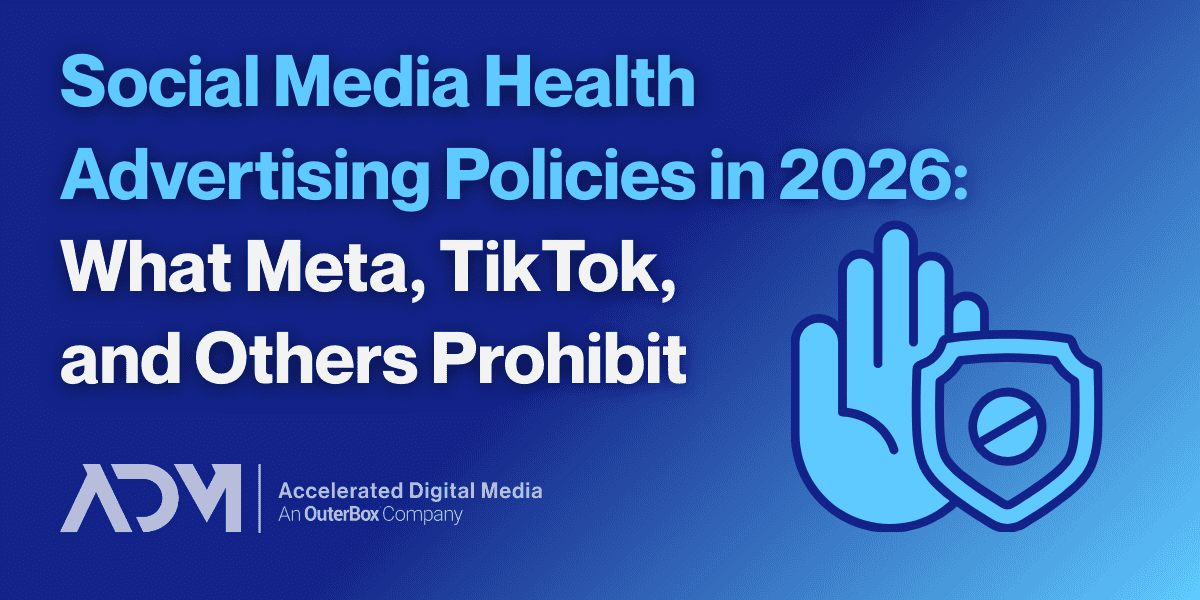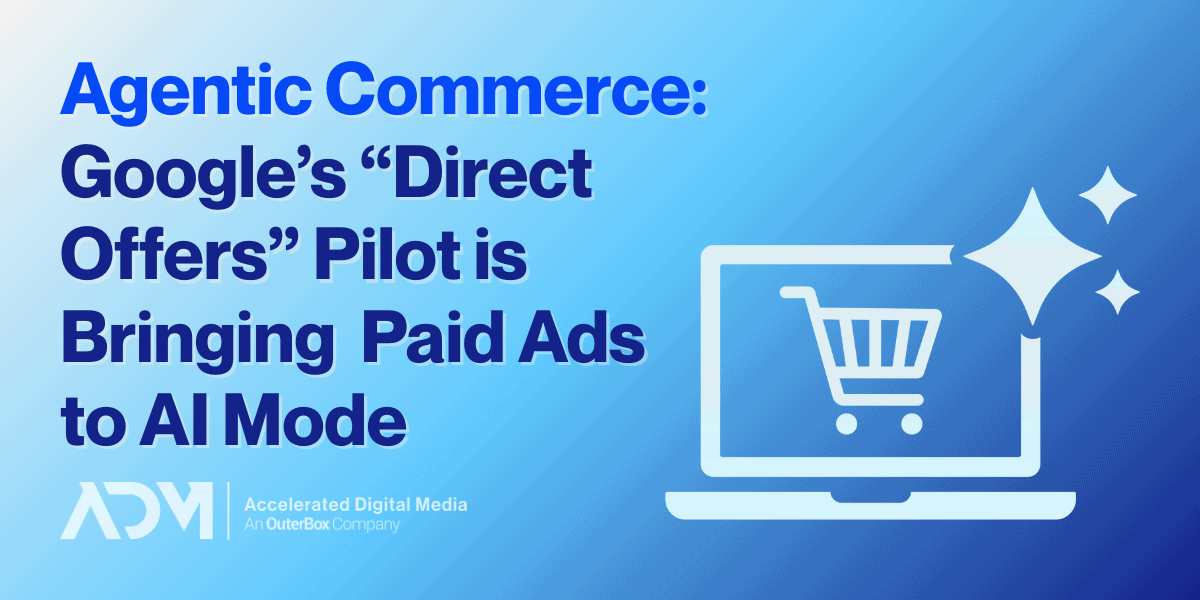Traditional, keyword-based search campaigns are particularly important for healthcare brands because of the limitations they face in their marketing. Health brands can’t collect and utilize the same data that, say, eCommerce marketers can due to federal policies like HIPAA. Meanwhile, platform-specific policies, like Google Ads’ Personalized Advertising Policy, create a number of restrictions that inhibit the impact of typical top-of-funnel tactics like Video or Demand Gen.
These common-sense policies make it extremely important for health advertisers to build out a search program that addresses all parts of the patient journey. Paid search is a tactic that healthcare marketing agencies rely on because it allows health companies to meet potential patients based on their specific needs.
Understanding the intent behind search queries
Because searchers have varying degrees of knowledge about specific conditions, treatments, and other health-related topics, there’s often a discovery phase to kick off their research. High-level queries, like “pain in the abdomen” may not necessarily demonstrate clear intent, but smart health brands can use them as a basis to offer helpful information so users can learn more about their health conditions and treatment options.
Higher-intent queries are likely to address practical questions or concerns. If a user is researching dosage details, side effects, and availability of a specific medication, it’s very likely that this user is strongly considering asking their provider about a prescription. If a user is seeking information about specific conditions, such as symptoms and treatment options, then they are also likely to be seeking care in the near future.
Paid search should help answer patient questions
One of the primary factors that health brands often overlook is the amount of research it takes for a prospective patient to feel comfortable trusting a new provider or treatment option. Health offerings aren’t like consumer products, and people with concerns about their health don’t want a sales pitch. They need accurate information that builds trust and supports their decisions.
Landing pages need to be clear and transparent, answering that will help prospective patients feel comfortable before taking action. For example, a pharmaceutical landing page would need to answer questions about:
- The prescription and delivery process
- Whether the medication will be a short-run (ie: single month) or recurring subscription
- Potential side effects and likelihood of experiencing them
- Sources/studies for any health-related claims
…and countless others. Knowing that so many questions come up in a user’s research period, healthcare advertisers need to ensure that their paid search campaigns use them as a basis for long-tail keywords. Building out keywords around things like prescription details, efficacy, side effects, reviews, case studies, etc. may seem excessive, but taking the time to become a resource for prospective patients can be what leads them to choose one provider over another.
Ad copy must align with search intent
Ad copy is all about establishing expectation and aligning with search intent. Since healthcare journeys encapsulate many different concerns a searcher may have, it’s helpful to break ad groups into very specific themes so that ad copy can clearly address the specific points a user hopes to discover or learn more about.
For example, an advertiser creating a campaign around a specific medication can’t just run a single ad copy that says “Learn About Medication X.” Instead, they need to build out separate ad groups for all sorts of things that a prospective user may ask before considering the medication.
- Use-cases
- Benefits
- Side effects
- Prescription requirements
- Price/Insurance coverage
The list could go on. Clear headlines should read “Medication X Use Cases” and “Benefits Of Medication X.” Advertisers must specifically address the searcher’s need if they hope to break through the noise in crowded, expensive healthcare auctions.
Segmenting non-brand search campaigns
Regardless of industry, the ideal structure for non-brand search campaigns should match a common user research journey. In healthcare, this might require a tiered structure where advertisers associate specific keywords and ad groups with different phases of patient research.
For example, a local clinic might want to build awareness by targeting keywords around pain, accidents, and illness (ie: “pain in abdomen”). It’s important to remember that these types of queries alone are not likely to result in appointments booked, but are likely an important early step.
Let’s say that while this prospective patient is researching their specific pain, they find a local care provider who has a blog post about common causes for the pain they are experiencing. Here the user might continue researching those causes, with a follow-up query along the lines of “how to tell if I have gallstones” or “symptoms of appendicitis.”
These types of queries are starting to show some intent, as the searcher may have learned enough to feel the need to be checked for a specific condition. If that same local provider has resources available around these conditions, the prospective patient is likely to check into those based on the trust they’ve already begun to establish for the provider.
After doing some more research, the patient may be ready to either book an appointment or potentially visit an urgent care to be seen right away. The next search may be to check things like reviews, clinic hours, and insurance policies of that provider. These types of terms will be addressed through Brand Search campaigns, which are closer to the final stages that ultimately lead to appointments.
Paid search is essential to healthcare marketing
Because of Google’s Personalized Advertising policy, remarketing is a violation in healthcare accounts. Since health advertisers can’t use the same tactics to create a purchase path the way that eCommerce brands can, it’s important to cast a wide net at each stage of the funnel and optimize performance based on results.
There are many possible conditions that could be causing a user to search for a general health situation. For an advertiser to draw a user’s first and next click, it needs to have a well-structured paid search strategy that addresses all potential queries with relevant, informative content. If you’re looking for an expert healthcare-focused paid search agency who can help you build one, then you’re in the right place. Reach out to the ADM team for a free consultation and let’s discuss what we can do for your brand!



